Each year, we ask our staff and reviewers to share their favorite books of the year. Here's the first installment, with more to come over the next few weeks.
Top Ten Books of
2010: Valerie Ryan, reviewer
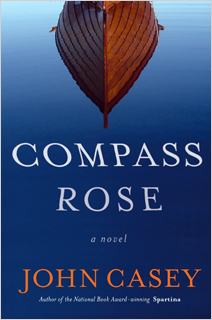 Compass Rose by John Casey
(Knopf). Read the National Book Award-winning Spartina
first for the full flavor of Casey's magnum opus (or magna opera). Casey can
write the thoughts, feelings, emotions, hopes and dreams of women, be they wives,
mothers, daughters or lovers, better than anyone since Reynolds Price wrote Kate Vaiden. Rhode Island commercial
fisherman Dick Pierce and Elsie Buttrick form the centerpiece of this tale of an
insular community, the interconnected lives of all who live there and the
hurricanes they live with, internal and external.
Compass Rose by John Casey
(Knopf). Read the National Book Award-winning Spartina
first for the full flavor of Casey's magnum opus (or magna opera). Casey can
write the thoughts, feelings, emotions, hopes and dreams of women, be they wives,
mothers, daughters or lovers, better than anyone since Reynolds Price wrote Kate Vaiden. Rhode Island commercial
fisherman Dick Pierce and Elsie Buttrick form the centerpiece of this tale of an
insular community, the interconnected lives of all who live there and the
hurricanes they live with, internal and external.
Moonlight Mile by Dennis Lehane
(Harper). Patrick Kenzie and Angie Gennaro are back! This book is not as edgy
as the others, but they are married and have a baby now, so that ups the ante
and adds some gooey baby talk. The little girl in Gone Baby Gone is missing again, 12 years later, and Kenzie and
Gennaro are on the hunt. The Russian thugs are cartoonish but Lehane's dialogue
is fresh and sassy as ever.
Freedom by Jonathan Franzen
(Farrar, Straus & Giroux). Walter and Patty Berglund are navigating their
way through their marriage, jobs, the daily news, a son who moves in with the
right-wing next door neighbors, Patty's ongoing infatuation with Walter's
friend, rock musician Richard Katz--and their compass fails. Franzen somehow,
magically, raises all of this out of the realm of the mundane and illuminates
the 21st century
for us.
Our
Kind of Traitor by John le Carré (Viking). Le Carré's axiom that they are all
bad guys, no matter what side they're on, is borne out once again in this tale
of money laundering and other nefarious acts. A young Oxford don and his
girlfriend go on an off-season getaway to Antigua. They run into a bluff and
hearty Russian multimillionaire who wants a game of tennis, and that's not all;
what he's really after is help defecting to England.
Matterhorn by Karl Marlantes (Atlantic Monthly
Press/El León Literary Arts). Thirty years in the
making, this might be the definitive Vietnam War book. Marlantes was there, and
the immediacy of his experience is present on every page. In circumstances of
squalor, bad food, killing heat and humidity and body rot, young men are sent
repeatedly to take a big hill. They succeed and are then told to give it up. The
fatuousness of war comes through loud and clear.
Lacuna by Barbara Kingsolver (Harper). In Kingsolver's
book, "lacuna" is used actually and symbolically, as a foreshadowing
of events to come and, in its larger meaning, as a symbol for the enormous
chasm between truth and perception. Harrison Shepherd is accused of being a
Communist because he served as general dogsbody for Frida Kahlo and Leon
Trotsky in Mexico. Kingsolver uses this as a springboard for the exploration of
a dark period in American history.
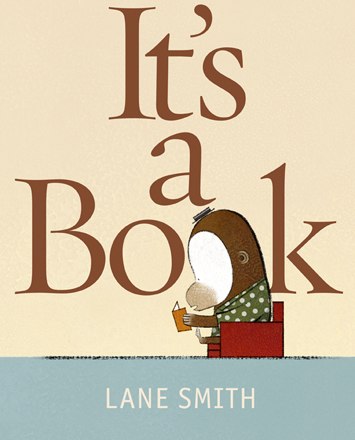 It's a Book by Lane Smith (Roaring
Brook Press). We needed this! A funny, telling look at what is becoming of
print in the hands of the young--some of them. A jackass questions monkey (and
mouse tagging along under his hat) about what it is he has in his hand. He asks
all the obvious questions: "Can you blog with it, can you scroll down"
and is answered each time with, "No, it's a book." Much too good for
kids.
It's a Book by Lane Smith (Roaring
Brook Press). We needed this! A funny, telling look at what is becoming of
print in the hands of the young--some of them. A jackass questions monkey (and
mouse tagging along under his hat) about what it is he has in his hand. He asks
all the obvious questions: "Can you blog with it, can you scroll down"
and is answered each time with, "No, it's a book." Much too good for
kids.
The Noël Coward
Reader,
edited by Barry Day, foreword by Cameron Mackintosh (Knopf). An entertaining
introduction to the life and work of the inimitable Noël Coward for those who
do not know about either. Short stories, essays, patriotic works, plays, songs,
light verse--filled with wit and sophistication. Even his snarky sarcasm was
irresistibly clever! Wait! I think I hear him singing "Someday I'll Find
You."
The Possessed by Elif Batuman (Farrar,
Straus & Giroux). The subtitle of Batuman's book, "Adventures with
Russian Books and the People Who Read Them," doesn't begin to tell the
tale of this quirky, funny, erudite hybrid of intellectual razzle-dazzle,
graduate school angst, youthful high spirits and a serious examination of
aspects of Russians and their literature never before undertaken in quite the
same way. Her descriptions of life in Samarkand, living with her boyfriend and
studying with a series of eccentrics is told dead-pan and makes you laugh out
loud. Don't miss this one-off.
Instead
of a 10th book, I would like to mention 10 favorites that are certainly not
past their sell-by date, but might be overlooked in the tumult of the NEW! They
are: City of Thieves, The Glass Room, Mudbound, Goldengrove, Border Songs, Any Human Heart, The House
on Fortune Street, The Song Before It
Is Sung, White Tiger and Olive Kitteredge.
---
Top Ten Books of 2010:
Debra Ginsberg, reviewer
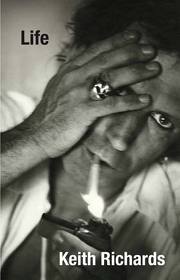 Life by Keith Richards
(Little, Brown). Sex, drugs and Keith Richards. Enough said. Easily one of the
best rock 'n' roll memoirs out there.
Life by Keith Richards
(Little, Brown). Sex, drugs and Keith Richards. Enough said. Easily one of the
best rock 'n' roll memoirs out there.
Savages by Don Winslow
(Simon & Schuster). Fast, funny, dirty, and very clever. An expert crime
writer, Don Winslow exposes the dark side of his sunny SoCal setting.
Blind Descent by James Tabor
(Random House). James Tabor's meticulously researched account of deep cave
exploration is a thrilling nail-biter. Make sure to read this tale of the dark
world under the earth's surface with all the lights on.
Still Midnight by Denise Mina
(Reagan Arthur Books). An outstanding thriller from Scottish writer Mina; dark,
thoughtful and full of fascinating character studies.
The Good Son by Michael Gruber
(Holt). Michael Gruber is surely one of the best--and smartest--thriller
writers working today. This complex tale of terrorism, faith, and family is no
exception.
It's A Book by Lane Smith
(Roaring Brook Press). This sweet and clever hardcover about the unbridled joy
of reading (and of books) may be one
of the most important children's books in recent memory.
One More Theory
About Happiness
by Paul Guest (Ecco). Poet Paul Guest's memoir of living with quadriplegia and
becoming a writer is beautifully crafted and never self-pitying.
Game Change by John Heilemann
and Mark Halperin (Harper). A truly juicy and compulsively readable account of
the 2008 presidential campaign. Schadenfreude for everyone!
Broken by Karin Fossum
(Houghton Mifflin Harcourt). This chilling novel of psychological suspense from
Norwegian writer Karin Fossum has a metafictional twist that renders her dark
take on human nature completely irresistible.
Just Kids by Patti Smith
(Ecco). More than simply an account of her evolution as an artist, Patti Smith's
elegant, poetic memoir is also a deep and bittersweet love story.
---
Top Ten Books of
2010: Marilyn Dahl, book review editor
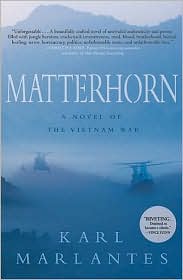 Matterhorn: A Novel
of the Vietnam War
by Karl Marlantes (Atlantic Monthly Press with El León Literary Arts) If
I had any reservations about reading another novel about the Vietnam War, I soon
abandoned them with this mesmerizing, heart-pounding ride
through three months of combat. Karl Marlantes has written a novel that is
vivid, thrilling and authentic, a timeless tale of bravery, misery, stupidity
and love; in essence, a hero's journey, a quest for meaning. In telling the
eternal story of an insane war, he has created a wondrous and remarkable book,
written from the deep places of the heart with passion and courage.
Matterhorn: A Novel
of the Vietnam War
by Karl Marlantes (Atlantic Monthly Press with El León Literary Arts) If
I had any reservations about reading another novel about the Vietnam War, I soon
abandoned them with this mesmerizing, heart-pounding ride
through three months of combat. Karl Marlantes has written a novel that is
vivid, thrilling and authentic, a timeless tale of bravery, misery, stupidity
and love; in essence, a hero's journey, a quest for meaning. In telling the
eternal story of an insane war, he has created a wondrous and remarkable book,
written from the deep places of the heart with passion and courage.
City of Tranquil
Light
by Bo Caldwell (Henry Holt) This is an enthralling love story about Will
and Katherine Kiehn, their adopted country of China, and their God--a deceptively straightforward tale told in powerful, profound prose. It's based on the life of Caldwell's maternal grandparents, who were missionaries
in China and Taiwan from 1906 to 1961. In melding fiction and truth, we learn
about remarkable lives, but also sense that we are discovering what Caldwell
herself has learned of life and love and faith.
The Wake of
Forgiveness
by Bruce Machart (Houghton Mifflin Harcourt) Bruce Machart has written a marvel of a book, stunning and riveting,
set in Texas in the early 1900s. The story of Karel Skala, his brothers and his
brutal father is a heartbreaking exploration of how mother-loss can shatter
lives. His depictions of a hard land and a hard life, softened by women and the
distractions of beer, church and polka music, evoke a recent past so clearly
one can hear the click of dominoes and taste a cold pilsner. His rich prose
shimmers and shocks, as the tragedy sown in the wake of the plow turns into the
wake of redemption.
Anthropology of an
American Girl
by Hilary Thayer Hamann (Spiegel & Grau) This novel
opens in the autumn of 1979, with teenage Eveline on the cusp of womanhood, and
follows into her 20s as Hamman explores themes of love and loss, trust and
betrayal, innocence and maturity. This is an incredibly intense and passionate
book; it's romantic in the grand sense, a rich, affecting experience. It's
completely entrancing, and while you don't want it to end, you still feel tremendous
satisfaction at the finish.
Skippy Dies by Paul Murray (Faber
& Faber) Right at the beginning, Skippy does die. But how? And why? Those questions form the core of this hilarious and
harrowing novel set in an elite Dublin boys' school. It's inventive, haunting
and brilliant, laced with broad humor and subtle wit. Murray confronts the "grinding
emptiness" at the heart of the adult world, and mourns for the schoolboys
being pushed into that world without a moral compass. Skippy Dies was longlisted for the Man Booker Prize this year; we're
amazed (but not bitter) it didn't win.
The Crying Tree by Naseem Rakha
(Broadway reprint) An
absolutely mesmerizing novel about tragedy and the redemptive power of
forgiveness, plotted around the killing of a boy and his murderer on Death Row. Rakha has written a book that is almost
impossible to put down. It is hauntingly beautiful, with wonderfully complex
characters; there are a few surprises in the story, but the point is not the
mysteries of fact, but the mysteries of the heart.
An Altar in the
World
by Barbara Brown Taylor (HarperOne reprint) Taylor is writing for people who
long for more meaning, more feeling, more connection, more life. She says for
now, we must open our arms to what is, instead of waiting for what should be.
We must pay attention to the spot we're standing on, to the people around us. "The
most ordinary things are drenched in divine possibility." With
wisdom, grace and wit, she has given us a blessing with this honest and
beautiful book.
Major Pettigrew's
Last Stand
by Helen Simonson (Random House) An absolutely charming book about a widower,
Major Pettigrew, and a widow, Jasmina Ali. The Major is a very proper
Englishman, Jasmina is Pakistani shopkeeper, and they somewhat surprisingly
become friends when the Major's younger brother, Bertie, dies. There is some
Pettigrew family drama concerning a set of matched pistols that the Major wants
to reunite (Bertie had one of them), but the drama, and comedy, of the growing
friendship between Jasmina and the Major is the attraction here. Simonson has
written with aplomb a sweet, tart romantic comedy--it's hard to believe this is
her first novel.
Game Change: Obama and the Clintons, McCain and
Palin, and the Race of a Lifetime by
John Heilemann and Mark Halperin (Harper) I usually reserve the words "page
turner" for mysteries, but if any book should be called a page turner it's
this one. It's fascinating, it's horrifying, it's riveting, and... it's juicy.
Really juicy. I hope for a return engagement in 2012.
Hush by Eishes Chayil
(Walker Books for Young Readers) Ostensibly geared to the YA market, Hush can, and should be, read by adults
as well. A 17 year-old Hasidic girl, Gittel, is to be married soon, but she's
haunted by her friend Devory's suicide. She knows why Devory killed herself, but
in Gittel's insular religious community, her secret cannot be spoken of,
because "that" just doesn't happen in her world. Her struggles with
her faith and her knowledge are the core of this unforgettable novel.
Two
authors, not books, round up the list to 11: Georgette Heyer and Edmund Crispin.
I had read both of them years ago, and have happily rediscovered them thanks to
Sourcebooks (Heyer) and Felony & Mayhem (Crispin). Heyer is best-known for
her Regencies, but her mysteries are quite wonderful. Written between 1932 and
1953, they are in the vein of Christie, Tey, Allingham and Wentworth, but are
distinguished by the wit that makes her Regencies so appealing. Crispin wrote
in the '40s and '50s, with a literary, humorous (and often farcical) style. His
character, Oxford don Gervase Fen, is brilliant, cranky, eccentric and
sarcastic, and Crispin's prose is a delight.
And
another vote for It's a Book!
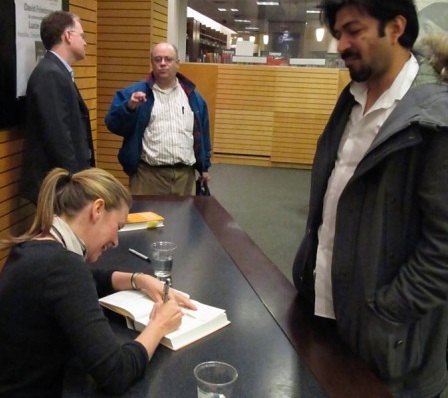 Authors supporting
authors. At a signing at the Lincoln Triangle Barnes & Noble in New
York City, Kristen Mulvihill, co-author with her husband, David Rohde,
of A Rope and a Prayer: A Kidnapping from Two Sides (Viking), signs a
copy of the book for Siddhartha Mukherjee, author of The Emperor of All
Maladies: A Biography of Cancer (Scribner). Rohde is in the back at the
left.
Authors supporting
authors. At a signing at the Lincoln Triangle Barnes & Noble in New
York City, Kristen Mulvihill, co-author with her husband, David Rohde,
of A Rope and a Prayer: A Kidnapping from Two Sides (Viking), signs a
copy of the book for Siddhartha Mukherjee, author of The Emperor of All
Maladies: A Biography of Cancer (Scribner). Rohde is in the back at the
left.










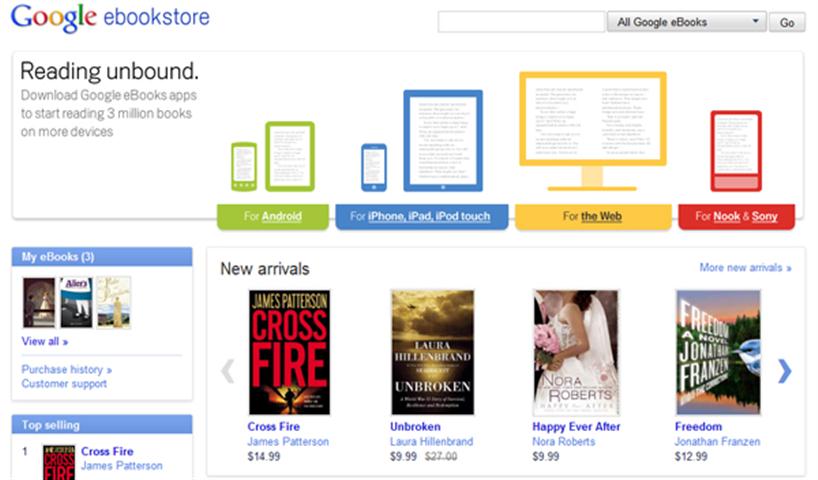 Independent booksellers, many of whom have feared being sidestepped by the dramatic growth in e-book popularity in the past few years, greeted the news enthusiastically. Michael Tucker, president of the American Booksellers Association, commented: "This partnership with Google is an important chapter in the renaissance we've been seeing in independent bookselling. It allows our membership to better compete with corporate retailers on selection, price, and convenience. It levels the playing field."
Independent booksellers, many of whom have feared being sidestepped by the dramatic growth in e-book popularity in the past few years, greeted the news enthusiastically. Michael Tucker, president of the American Booksellers Association, commented: "This partnership with Google is an important chapter in the renaissance we've been seeing in independent bookselling. It allows our membership to better compete with corporate retailers on selection, price, and convenience. It levels the playing field."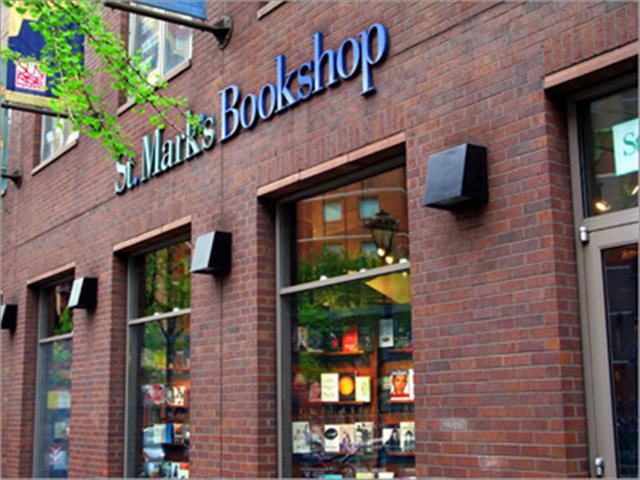 In a much smaller but very significant and related move, OR Books, the year-old publishing company founded by John Oakes and Colin Robinson that publishes only e-books and POD, has teamed up with St. Mark's Bookshop in New York City to allow St. Mark's customers to buy OR e-books and printed books on the store's website. This may be the first time a publisher has teamed up with an independent bookstore to sell e-books. OR hopes to expand the program to other bookstores in the U.S. and internationally.
In a much smaller but very significant and related move, OR Books, the year-old publishing company founded by John Oakes and Colin Robinson that publishes only e-books and POD, has teamed up with St. Mark's Bookshop in New York City to allow St. Mark's customers to buy OR e-books and printed books on the store's website. This may be the first time a publisher has teamed up with an independent bookstore to sell e-books. OR hopes to expand the program to other bookstores in the U.S. and internationally.
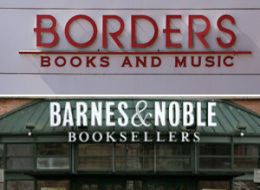 Oh, yes, there was another
Oh, yes, there was another 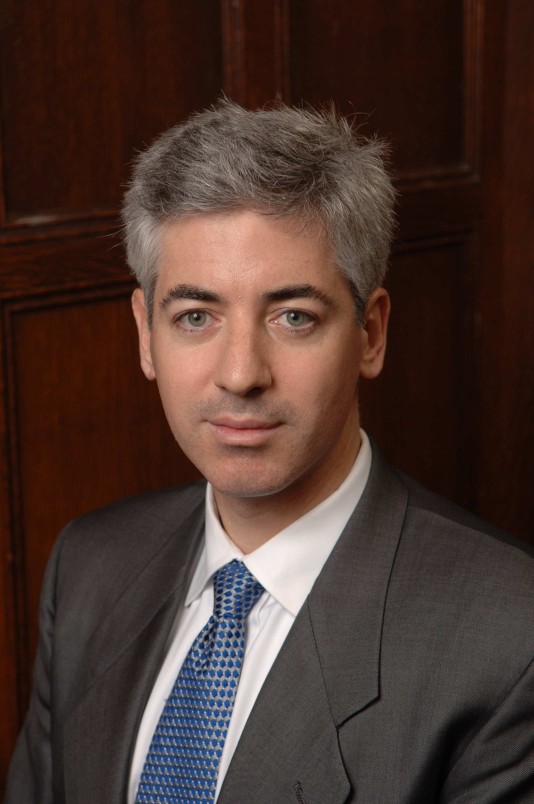 is late to the digital book game. The
is late to the digital book game. The BINC.0325.T2.SUSANKAMILEMERGINGWRITERSPRIZE.jpg)
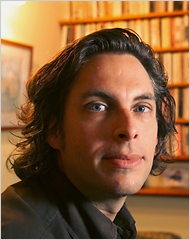 Congratulations to author Michael Chabon, who has become chairman of the board of directors of the
Congratulations to author Michael Chabon, who has become chairman of the board of directors of the 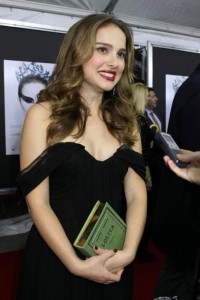 Literary fashion statement of the day: Natalie Portman appeared at the New York premiere of Black Swan carrying a purse made from of a copy of Vladimir Nabokov's Lolita. The Los Angeles Times
Literary fashion statement of the day: Natalie Portman appeared at the New York premiere of Black Swan carrying a purse made from of a copy of Vladimir Nabokov's Lolita. The Los Angeles Times  "The road to Jonathan Franzen's appearance on Oprah has been a long and fraught one,"
"The road to Jonathan Franzen's appearance on Oprah has been a long and fraught one," 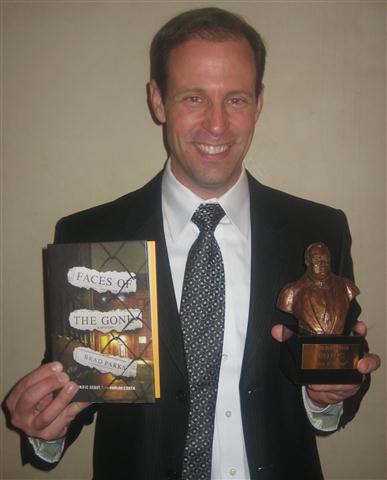 Brad Parks has won the Nero Award for Faces of the Gone (Minotaur), his debut mystery. Named for Nero Wolfe, the protagonist in some 72 Rex Stout novels and novellas, the award recognizes the best American mystery of the year and is given by the Wolfe Pack, a literary society.
Brad Parks has won the Nero Award for Faces of the Gone (Minotaur), his debut mystery. Named for Nero Wolfe, the protagonist in some 72 Rex Stout novels and novellas, the award recognizes the best American mystery of the year and is given by the Wolfe Pack, a literary society. Compass Rose by John Casey
(Knopf). Read the National Book Award-winning Spartina
first for the full flavor of Casey's magnum opus (or magna opera). Casey can
write the thoughts, feelings, emotions, hopes and dreams of women, be they wives,
mothers, daughters or lovers, better than anyone since Reynolds Price wrote Kate Vaiden. Rhode Island commercial
fisherman Dick Pierce and Elsie Buttrick form the centerpiece of this tale of an
insular community, the interconnected lives of all who live there and the
hurricanes they live with, internal and external.
Compass Rose by John Casey
(Knopf). Read the National Book Award-winning Spartina
first for the full flavor of Casey's magnum opus (or magna opera). Casey can
write the thoughts, feelings, emotions, hopes and dreams of women, be they wives,
mothers, daughters or lovers, better than anyone since Reynolds Price wrote Kate Vaiden. Rhode Island commercial
fisherman Dick Pierce and Elsie Buttrick form the centerpiece of this tale of an
insular community, the interconnected lives of all who live there and the
hurricanes they live with, internal and external. It's a Book by Lane Smith (Roaring
Brook Press). We needed this! A funny, telling look at what is becoming of
print in the hands of the young--some of them. A jackass questions monkey (and
mouse tagging along under his hat) about what it is he has in his hand. He asks
all the obvious questions: "Can you blog with it, can you scroll down"
and is answered each time with, "No, it's a book." Much too good for
kids.
It's a Book by Lane Smith (Roaring
Brook Press). We needed this! A funny, telling look at what is becoming of
print in the hands of the young--some of them. A jackass questions monkey (and
mouse tagging along under his hat) about what it is he has in his hand. He asks
all the obvious questions: "Can you blog with it, can you scroll down"
and is answered each time with, "No, it's a book." Much too good for
kids. Life by Keith Richards
(Little, Brown). Sex, drugs and Keith Richards. Enough said. Easily one of the
best rock 'n' roll memoirs out there.
Life by Keith Richards
(Little, Brown). Sex, drugs and Keith Richards. Enough said. Easily one of the
best rock 'n' roll memoirs out there.  Candor, good humor and hair-raising tales of rock 'n' roll life on the road and in the studio abound in this terrific collection of interviews with women who have contributed so much to the music of our time. Among the more widely known of the 20 women Zora von Borden spoke with are Laurie Anderson, Nina Hagen, Phoebe Legere and Wanda Jackson, the Queen of Rockabilly, but everyone here, even those new to me, has wisdom and wit to impart. "Risk is the fountain of youth and the fire of transformation," says Adele Bertei of the Contortions; Miss Mercy of the GTOs (Girls Together Outrageously) reveals that Alice Cooper copied her makeup--"His name was Vince when we met him." There are no secrets in a rock 'n' roll band.
Candor, good humor and hair-raising tales of rock 'n' roll life on the road and in the studio abound in this terrific collection of interviews with women who have contributed so much to the music of our time. Among the more widely known of the 20 women Zora von Borden spoke with are Laurie Anderson, Nina Hagen, Phoebe Legere and Wanda Jackson, the Queen of Rockabilly, but everyone here, even those new to me, has wisdom and wit to impart. "Risk is the fountain of youth and the fire of transformation," says Adele Bertei of the Contortions; Miss Mercy of the GTOs (Girls Together Outrageously) reveals that Alice Cooper copied her makeup--"His name was Vince when we met him." There are no secrets in a rock 'n' roll band.